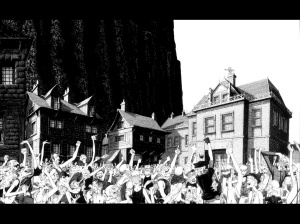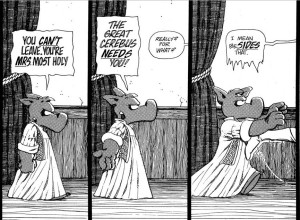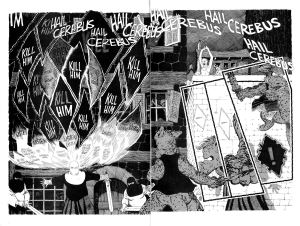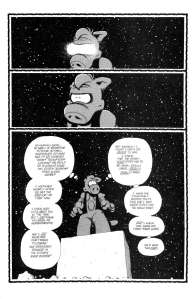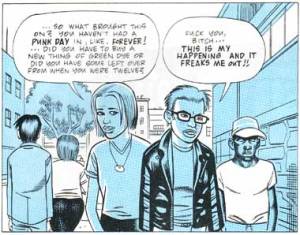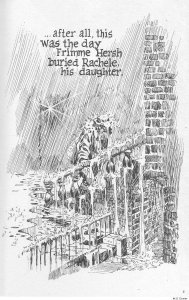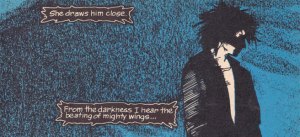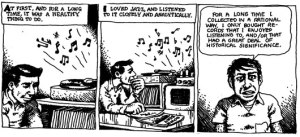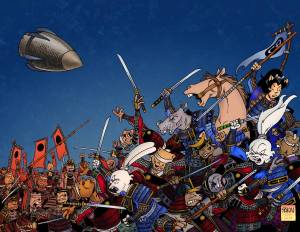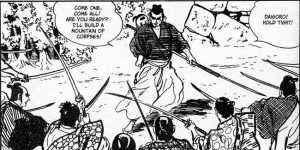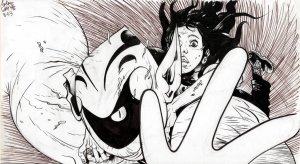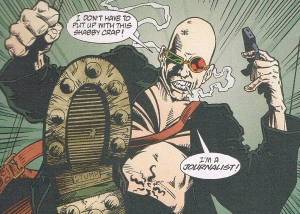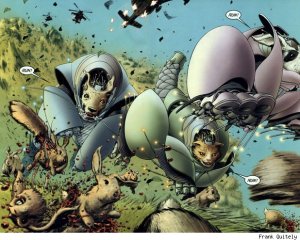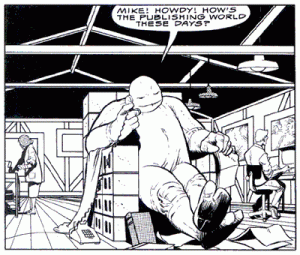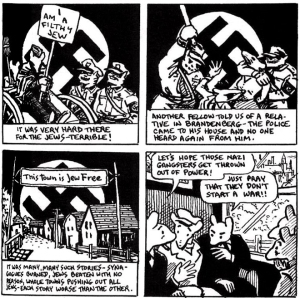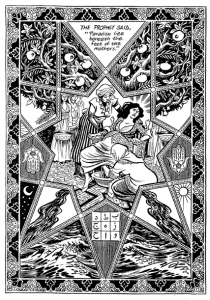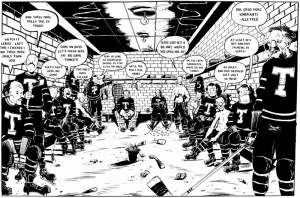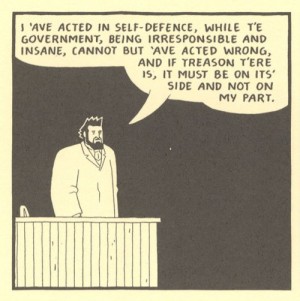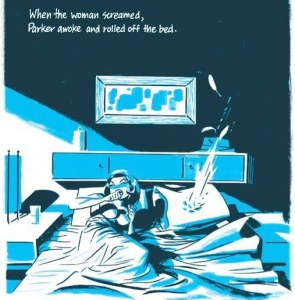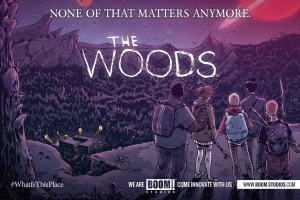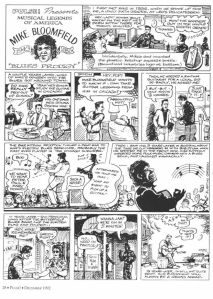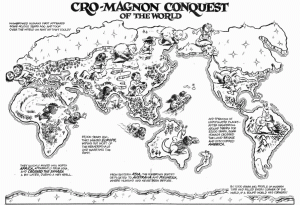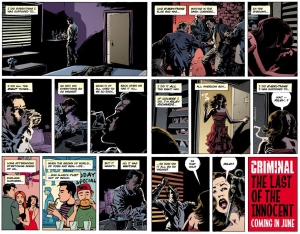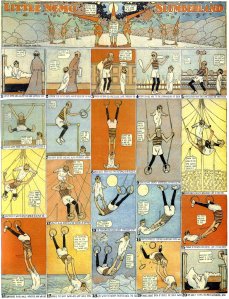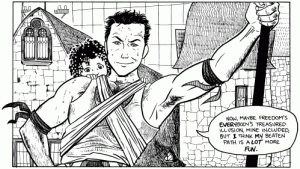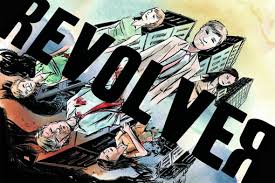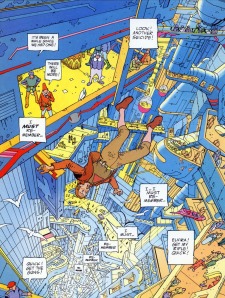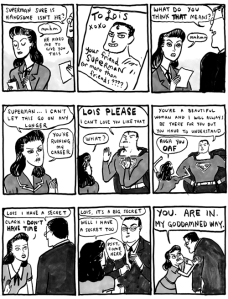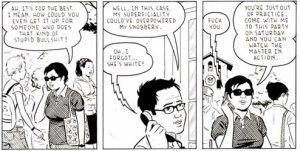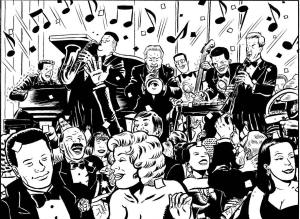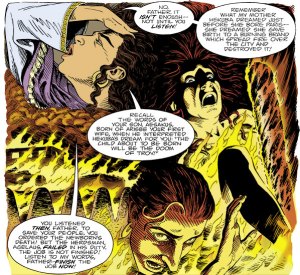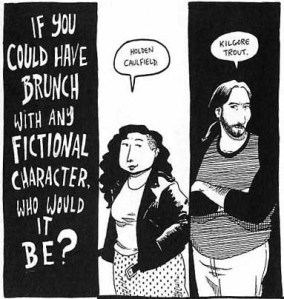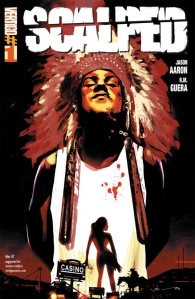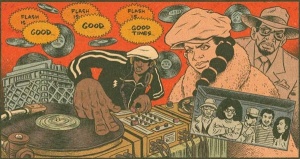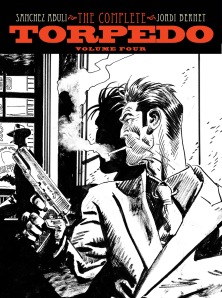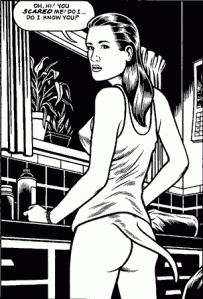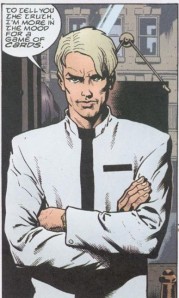Yikes. It took me over a year. Well over a year in fact. But I finally finished this project. Well, almost. You’ll see.
Any regrets? Like Sinatra, I’ve had a few. I wish i had put more older works in, and that the list hadn’t ended up being “The Best non-superhero comics of the last 30 years, with a few others added on”. I wish I had figured out how to get EC comics in the list, considering how many of them are among the greatest comics of the 20th Century (Other than just having one line item for all EC comics, which I didn’t think was fair either).
I wish more people had read this, considering how much work I put in. Can’t do much about that I guess. I was originally going to do a “Best superhero comics” list next, but so few people read this that I don’t think I’ll be doing that now.
Anyways, I still enjoyed the hell out of doing it. Let me know what you think of my list, and what you think I missed.
10. Everybody is Stupid Except For Me by Peter Bagge (2009, Fantagraphics)
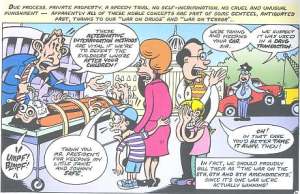
Purists will probably choose Hate as the best example of Bagge’s work. But I’ve chosen this collection of his work for the libertarian magazine Reason, because I think it showcases a seriousness that Bagge isn’t always given credit for. In Everybody, Bagge follows his subject matter wherever it takes him, despite the ideological bent of the magazine he’s working for. His exaggerated, hyper-kinetic art style belies the utter seriousness of the subject matter he’s tackling.
9. Clyde Fans by Seth (2000, Fantagraphics)

Seth’s thick, brush-style cartooning is familiar to most serious Canadian comic aficionados, and nowhere does it get utilized more effectively than in Clyde Fans, arguably the best comic book about air conditioner manufacturing ever created.
8. Bone by Jeff Smith (1991, Scholastics)
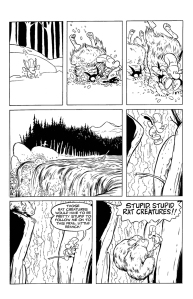
When I just want to unwind, have fun, and read comics just for the hell of it, Bone is always among my two or three top picks. Smith pays as much attention to character development as he does to his carefully laid out action sequences, which makes Bone basically the best Disney epic never made. Probably the best book to guarantee that your kid will love comics as much as you do.
7. From Hell by Alan Moore & Eddie Campbell (1989, Top Shelf)
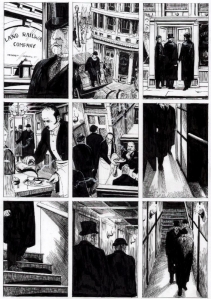
From Hell is Moore’s version of how the Jack The Ripper killings could have taken place. Unlike most Ripper stories, Moore’s version isn’t a whodunnit, it’s a whydunnit. Moore tells you within 20 pages who he thinks killed those women over a hundred years ago. He then spends the next 500 pages telling us why. And the why is absolutely bat-shit crazy. Or not, if you believe in the illuminati and love conspiracy theories and hate jewish people. Eddie Campbell is the MVP here, with his dense, claustrophobic cross-hatching being the perfect foil for Moore’s endless paragraphs of descriptive prose.
6. Asterios Polyp by David Mazzuchelli (2009, Pantheon)

I was hesitant to place something so recent so high, and there’s no doubt that if Polyp was 20 years old it would have a fair shot at taking the top spot. But Polyp more than holds it’s own with the other books on this list, and was being considered a classic almost immediately upon publication. Mazzuchelli is as highly regarded in the mainstream superhero world as he is in the “indie” world, and Polyp very much feels like a master reclaiming his rightful place at the top of the heap, after years out of the spotlight. Very few comics showcase the storytelling potential of narrative art the way that this one does.
5. Palestine by Joe Sacco (1996, Fantagraphics)

Joe Sacco didn’t create comics journalism, but with Palestine, he might as well have. Based on various visits to Palestine & Israel that Sacco took in the early 1990’s, it’s the documentation of the systematic destruction of a people, done in a time where such a viewpoint was not only unpopular, it was almost unheard of. Utterly polarizing to this day, Sacco’s work takes the 100 years worth of storytelling tools comic artists have taught themselves, and applies them to the most important story of all: The story of us.
4. Love & Rockets by Los Brothers Hernandez (1982, Fantagraphics)
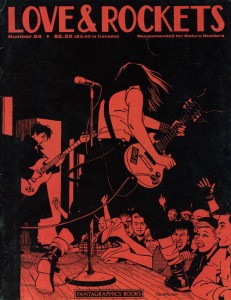
How do I sum up the plot of Love & Rockets?
Let’s see. It’s the story a group of people (mostly women, mostly Mexican), and….actually, that’s kind of it. Some of the comics are part of the Palomar storyline, which is the name of the fictional Latin American town that these stories are set, and some of them are part of the Locas storyline, focussing on Maggie & Hopey, two Mexican-American women whose destinies are often entwined. And some of the comics feature characters from both, and some of them are stand alone, and some of them are set in the future, and some of them have the characters dressed as superheroes, and so on. What Love & Rockets, is the single greatest arthouse movie ever done in comics form. To read these characters is to love them wholly, and to root for them whole heartedly.
3. Hellboy by Mike Mignola (1993, Dark Horse)
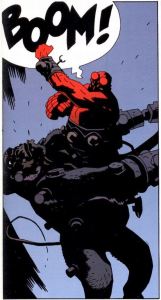
Probably the entry I most fretted about. I added it to the list, and then took it off. Then added it again, and so on. Not because of it’s quality, but because of it’s subject matter. The question: Is Hellboy a superhero book or not. The answer? Probably. It is at the beginning of it’s run, at least. However, relatively early on in morphed from a monster of the week narrative, into a vehicle for Mike Mignola to explore the mythology and fantastical stories that he loves. Though definitely more mainstream than many of the books here at the end of the list, Hellboy for me will always be the comic I read when I want to feel the pure joy that the medium of comics gives me like no other. It’s got everything; Action, pathos, and plenty of monsters, all by one of the most amazing artists that comics has ever known.
2. Jimmy Corrigan: The Smartest Kid On Earth by Chris Ware (2000, Pantheon)

“The first formal masterpiece of the medium”. That’s how The New Yorker described Corrigan when it was first published, and they weren’t wrong. The shadow that Ware created with Corrigan has loomed over comic books ever since. Ware uses complex design, alternate storylines, and flashbacks, to create an intensely personal story that is extremely small in scope, yet threatens to overwhelm in effect. If you love comic books, but haven’t read Corrigan yet…I’d argue that you don’t actually love comic books.
Yet.
On a personal note, it’s also the first comic book that ever made me cry as an adult (Don’t worry Crisis on Infinite Earths #7, you still get the overall win).
What? No Number one?
Agh! Cliffhanger!
I’ll post my top pick in the next day or so, but feel free to tell me what you think it is, or what you think it should be.
